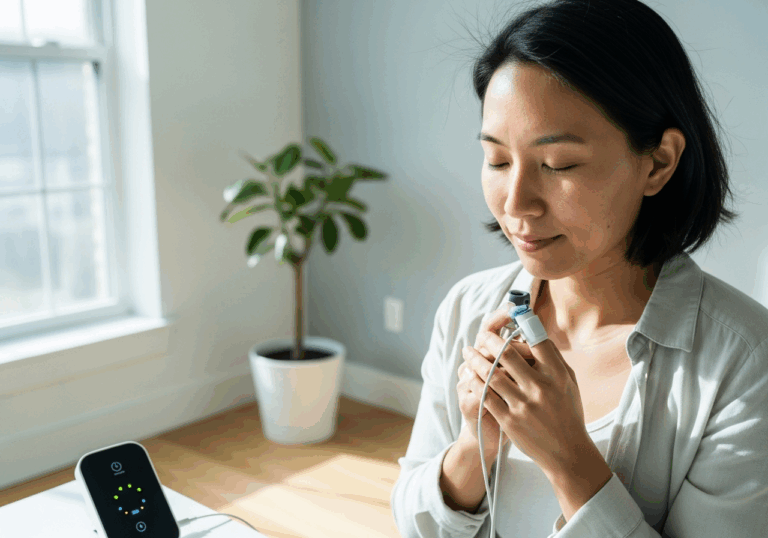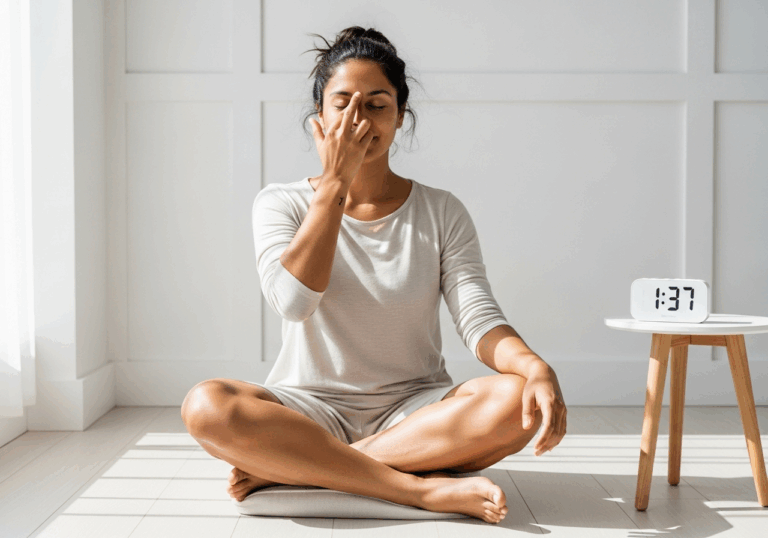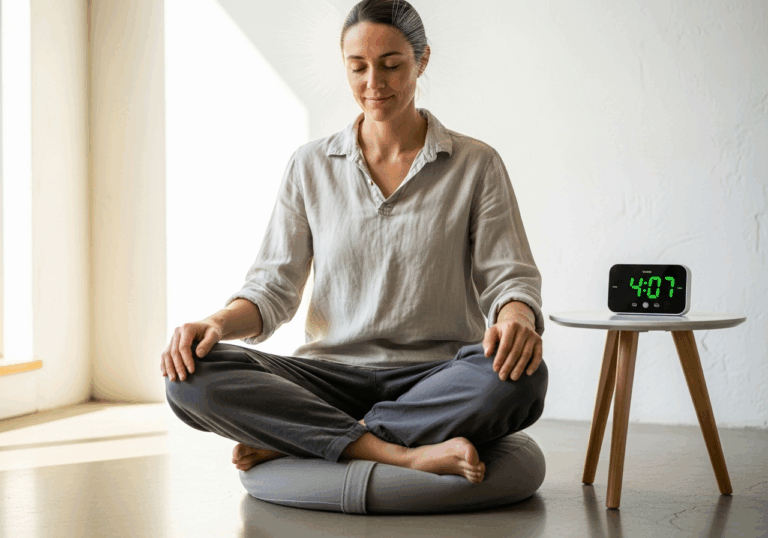Science-Backed Tips
Boost Your Mood with Short Breathing Sessions
Less than 10 minutes of breathing can improve HRV by 20%.
📊 Did you know?
💡 Why It Matters
1️⃣
Improved HRV is associated with better stress management and emotional regulation.
2️⃣
Short sessions can easily fit into daily routines, promoting consistent practice.
3️⃣
Enhanced mood can lead to improved productivity and overall quality of life.
✅ Try These Micro-Tips
🎯
Practice resonance breathing for 5-10 minutes daily to enhance HRV.
🎯
Incorporate breathing exercises into your morning routine for better emotional balance.
🎯
Use guided breathing apps to maintain consistency in your practice.
🎯
Set reminders to practice breathing exercises during stressful moments.
📚 The study
This is significant because improved HRV is closely linked to better stress management and emotional regulation, which are crucial for maintaining a balanced mood.
The beauty of this approach lies in its simplicity; these short sessions can easily be integrated into daily routines, making it feasible for anyone to practice consistently.
By promoting an uplifted mood, these brief exercises can lead to enhanced productivity and an overall improved quality of life.
Whether you’re a busy professional or a stay-at-home parent, dedicating just a few minutes each day to these practices can yield substantial benefits for your emotional health.
Embrace the power of HRVB and transform your daily life with just a few minutes of focused breathing.
❓ Frequently Asked Questions ❓
Learn more
What is resonance breathing?
Resonance breathing is a technique that involves controlled breathing patterns to enhance heart rate variability (HRV). It promotes emotional regulation and stress management through autonomic nervous system balance.
How long should I practice resonance breathing for it to be effective?
Practicing resonance breathing for just 5-10 minutes daily can yield significant benefits. Short sessions can easily fit into your daily routine, making it convenient to maintain consistency.
What are the benefits of increased heart rate variability (HRV)?
Improved HRV is associated with better stress management and emotional regulation. Higher HRV can lead to enhanced mood, productivity, and overall quality of life.
Can resonance breathing sessions be done at home?
Yes, resonance breathing sessions can be easily performed at home and require minimal time. Even short sessions of less than 10 minutes can lead to significant emotional and physiological benefits.
How does resonance breathing affect emotional reactivity?
Resonance breathing has been shown to reduce emotional reactivity, helping individuals respond to stressors more calmly. This can lead to improved emotional balance and well-being.
What is the best time to practice resonance breathing?
Incorporating resonance breathing into your morning routine can set a positive tone for the day. Additionally, practicing during stressful moments can help manage emotions effectively.
Are there any tools to help with resonance breathing practice?
Yes, there are various guided breathing apps available that can assist in maintaining consistency in your practice. These tools can provide instructions and reminders to enhance your experience.
How can I remember to practice resonance breathing?
Setting reminders on your phone or calendar can help prompt you to practice resonance breathing regularly. This can be particularly useful during stressful times when you need it most.
What results can I expect from regular resonance breathing practice?
Regular practice of resonance breathing can lead to increased HRV and decreased emotional reactivity. Over time, this can contribute to a more positive mood and improved overall well-being.
Is resonance breathing suitable for everyone?
Resonance breathing is generally suitable for most individuals looking to improve their emotional regulation and stress management. However, those with specific health concerns should consult a healthcare professional before starting any new practice.





